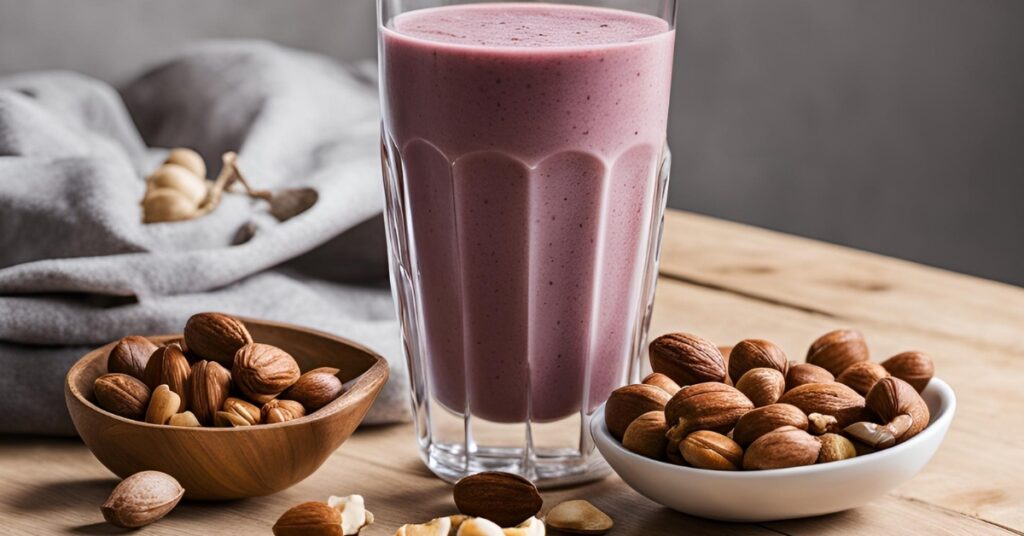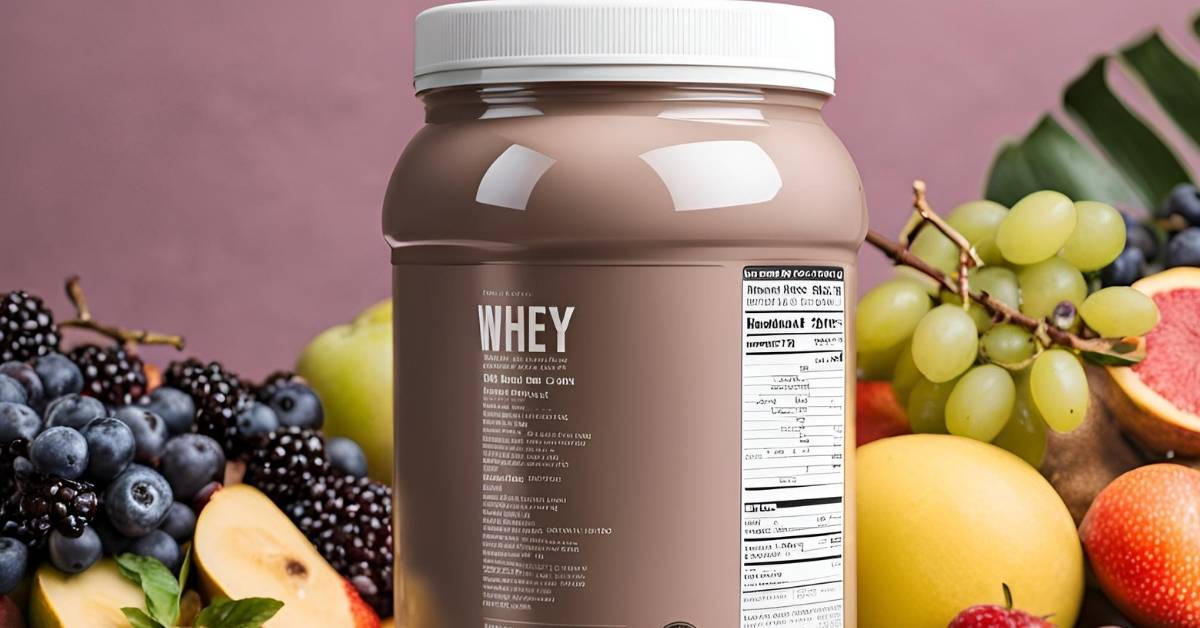Bodybuilding and fitness enthusiasts use protein powder as prescribed by their fitness trainer or a nutritionist to enhance post-workout recovery and build lean muscle mass. Although the use of protein powder is commonly found in the fitness industry, it is important to understand whether protein powder is for weight gain or muscle gain.
Although the consumption of protein powder provides many health benefits, consuming too much daily can lead to many other health problems, including unwanted weight gain. However, it is a great supplement in the fitness world.
Table of Contents
How much protein does the body need?
Not everyone can consume the same amount of protein each day, and whey protein dosage varies based on age, weight, gender, medical history, and health goals. Consume 1.6 to 2.2 grammes of protein per kilogram of body weight per day to aid in muscle growth and repair after a workout. For the average healthy adult who does not exercise, 0.8 grammes (g) of protein per kilogram (kg) of body weight is recommended. New studies suggest that physically active individuals require a much higher daily protein intake.
A registered dietitian nutritionist can also determine the amount of protein a person needs per day.
How whey protein cause unhealthy weight gain?
Protein powder itself does not cause weight gain; its improper use and use of substandard ingredients, along with a poor lifestyle and a lack of exercise, lead to unhealthy weight gain.
Let’s understand how protein powders contribute to unhealthy weight gain
High Servings: Protein powders should be consumed in serving sizes, which can vary depending on the brand you choose, and not consuming the recommended serving size can lead to macronutrient imbalances and weight gain.
Sugar And Fat: Protein powders contain added sugars and fats to enhance taste, and those who consume excessive amounts of fat and sugars from their diet can combine the added sugars and fats from these protein powders to lead to unhealthy body weight.
High-Fat Diet: Adding high-fat foods to your diet with protein powder can lead to unhealthy body weight gain.
Lack of Exercise: The amount of protein that is not needed by the body is converted into glucose, which can be converted into fat.
Types Of Protein Powders
Protein powders come in several forms, and before choosing a whey protein or vegan protein, it is important to understand that their properties and who should use them differ. These can be chosen based on dietary requirements, personal preferences, and medical check-ups.
Whey Concentrate: Whey obtained during the production of cheese is converted into whey protein through different processes. Whey concentrate contains 70–80% protein and is mixed with lactose, fat, and minerals.
Whey Isolate: whey isolate contains 90% protein and is lower in fat and lactose content than whey concentrate. It helps in gaining lean muscle mass. What sets it apart is the purity of the whey isolate and its low allergenic potential.
Whey Hydrolysate: It is pre-digested, thus allowing for quick digestion and rapid absorption by the body. These are great for bodybuilders and athletes because of their ability to quickly deliver amino acids to the muscles, aiding in faster recovery and muscle repair after intense workouts.
Vegan Protein Types
Soy Protein: It’s great for vegetarians because it’s a protein sourced from soybeans, and it contains nine amino acids that the body can’t make on its own. Other forms include textured soy protein, soy protein concentrate, and soy protein isolate.
Pea Protein: Pea protein is a great option for those with dairy or soy protein allergies, as it is made from yellow peas and contains branched-chain amino acids. Low in fat, it contains a lot of iron..
Pumpkin Seed Protein: Pumpkin seed protein is an excellent plant protein that is high in antioxidants and provides essential nutrients such as magnesium, zinc, and iron.
Hemp Protein: It is a good plant protein that contains nine essential amino acids. This protein is made from hemp seeds; apart from protein, it also provides the body with minerals like zinc, iron, and magnesium.
Protein Powders Side Effects And Risks
Protein powders, like all supplements, carry side effects and risks, especially when used inappropriately or in excess.
Artificial Additives: Excessive consumption of protein powders that contain artificial sweeteners, flavors, and preservatives can lead to unhealthy weight gain, gastrointestinal upset, and headaches in some people.
Toxins And Metals: Protein powders have been found to contain harmful heavy metals such as lead, arsenic, and BPA, so when choosing protein powders, choose from reputable brands that are third-party tested or tested for contamination.
Over Calories: Consuming large amounts of protein powders without adjusting and understanding overall calorie intake or in addition to regular meals can lead to unhealthy weight gain.
Lactose Intolerance: Protein powders high in lactose, such as whey concentrate, can cause stomach problems in people who are lactose intolerant.
Only Using Protein: Avoid consuming protein powder alone on a daily basis, as doing so will deprive you of the protein and nutrients you should be getting from food.
Allergic: contains gluten and soy, which are allergens in sensitive individuals, causing allergic reactions in such individuals.
Kidney Problems: People with kidney disease may find it difficult to consume too much protein powder.
Liver Problems: Those with liver disease or pre-existing liver disease should avoid excessive consumption of protein powder.
Things To Keep In Mind So That Protein Powder Does Not Cause Unhealthy Weight Gain And Other Health Problems
Consult A Professional: Before using a protein powder or other supplement, talk to a nutritionist or doctor about your health and what is right for you.
Protein-Balanced Diet: Make sure you don’t eat too much protein and use it in balance with protein from food.
Flavorless Quality Protein: Instead of proteins with added sugar and other flavors, use unsweetened and quality proteins.
Drink More Water: A high protein intake increases the body’s need for water. Drink water as much as your body needs.

What To Eat Whey Protein To Gain Healthy Weight ?
Whey protein can be used for healthy weight gain; for this, choose a good whey protein that is best unsweetened and unflavored. When using unflavored whey proteins, you can add any flavor you like.
Let’s take a look at how to use whey protein for healthy weight gain
Whey Smoothies: Oats, peanut butter, bananas, milk, and honey can be mixed with whey protein to make a smoothie and eaten for weight gain. By eating like this, you gain muscle mass and weight.
Pan Cakes: oats that have been ground into powder form, eggs, bananas, milk, baking powder, cardamom, or cinnamon can be added for flavour; add whey protein; and bake. Eating this will help you gain weight.
Apart from this, there are many recipes for smoothies and other foods that can be prepared using whey protein.
Conclusion
Most people start using protein powders after they start going to the gym, which is post-workout. Protein helps with muscle recovery and growth. Whey protein helps speed recovery by replacing amino acids lost during exercise. A person has to rely on protein powders only if they do not get enough protein in a day from food.
Weight gain cannot be achieved by consuming protein powder alone; knowing a person’s daily caloric intake and including more calories in the diet leads to weight gain. When protein powder smoothies or protein cakes are part of your diet, it changes your daily caloric intake, leading to weight gain.
To avoid unhealthy weight gain, it’s important to avoid consuming sugary protein powders with high-fat meals.

Good